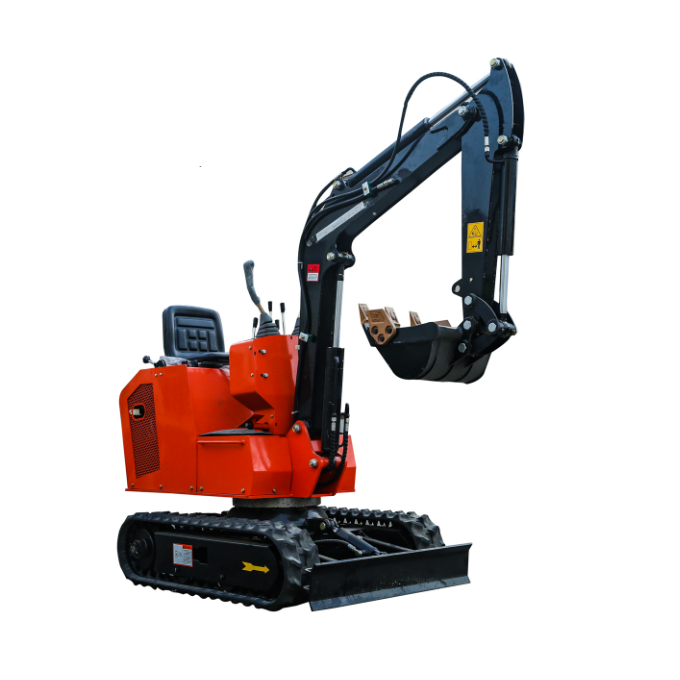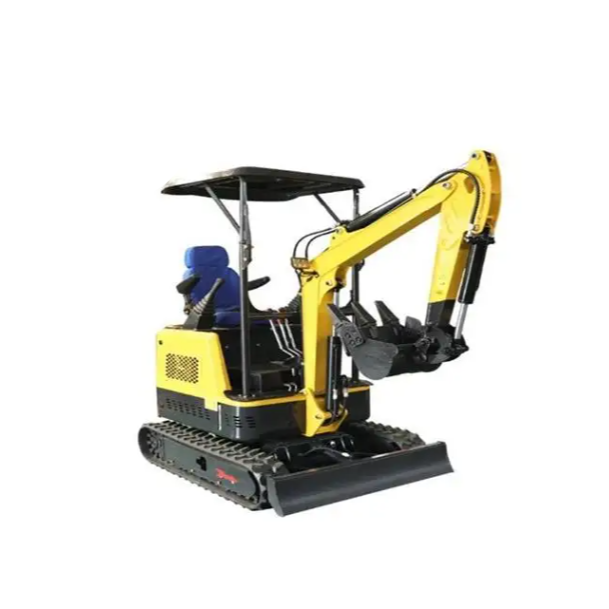Էքսկավատորների անսարքությունների հասկացությունը ավելի լավ սարքերի կառավարման համար
Ժամանակակից շինարարության մեջ գոռույթներ անփոխարինելի մեքենաներ են: Նրանց ճշգրտությամբ և հզորությամբ կատարելու հնարավորություն ունեն լայն տիպասարք ծանր աշխատանքների կատարման համար, որը դրանք դարձնում է բոլոր չափերի նախագծերի համար անհրաժեշտ: Սակայն, նույնիսկ ամենահզոր էքսկավատորները խափանումներից ազատ չեն: Շահագործման արդյունավետությունը պահպանելու և ծախսատու դադարներից խուսափելու համար կարևոր է հասկանալ էքսկավատորների խափանման հիմնական պատճառները և ինչպես կարելի է դրանք կանխել ճիշտ մեթոդներով և սպասարկմամբ
Շարժիչի և հիդրավլիկ համակարգի խնդիրներ
Ջերմային խնդիրներ
Շահագործման ընթացքում շատ հաճախ դիմանում են այնպիսի խնդրի, ինչպիսին է վերատաքացումը: Սովորաբար դա տեղի է ունենում այն դեպքում, երբ հնարավոր է հեղուկի սառեցման համակարգի խցանումը, ցածր մակարդակը և թերմոստատի անսարքությունը: էքսկավատոր այն դեպքում, երբ մեքենան աշխատում է տաք միջավայրում կամ անընդհատ լարված վիճակում՝ առանց հեղուկի սառեցման համակարգի պարբերական ստուգման, վերատաքացման վտանգը մեծանում է: Կանխարգելիչ նոպաներ, ինչպիսիք են ռադիատորի փետրաձև սալերի և հեղուկի որակի ստուգումը, օգնում են խուսափել շարժիչի վնասվածքներից:
Հիդրավլիկ հեղուկի աղտոտվածություն
Հիդրավլիկ համակարգը յուրաքանչյուր տնտեսական մեքենայի սիրտն է, էքսկավատոր որը շարժում է իր բազկերը, բումերը և ամրացված սարքերը: Աղտոտված հիդրավլիկ հեղուկը կարող է բերել ծանր շահագործման խնդիրների: Հեղուկում փոշին, ջուրը կամ մետաղական մասնիկները կարող են առաջացնել մասերի մաշվածություն և բերել վալիցների կամ պոմպերի անսարքության: Կանխարգելիչ միջոցառումներ են հանդիսանում հեղուկի նմուշառումը, ֆիլտրերի փոխումը և համակարգի լվացումը:
Բաղադրիչների մաշվածություն
Վարունքի մաշվածություն
Վարունքը մեքենայի ամենաթանկարժեք մասերից մեկն է, էքսկավատոր , և այն մեծ մաշվածություն է փորձում, հատկապես անխոնջ տարածքներում: Ժամանակի ընթացքում ճոպանները, ռոլիկները և սղոցները մաշվում են մշտական շփման մակերեսների հետ կապված աբրազիվ մակերեսների հետ: Ամենօրյա ստուգումներ և ժամանակին ճշգրտումներ, ինչպես օրինակ՝ ճոպանների ճիշտ լարում և մաքրումը, օգնում են երկարացնել այդ մասերի կյանքը։
Վանդակի և Ամրացման Խափանում
Ամրացումները, ինչպես օրինակ՝ վանդակները և հիդրավլիկ մարտկոցները, ենթարկվում են ինտենսիվ մեխանիկական լարման: ճեղքեր, կորած ատամներ կամ փշրված ամրաններ կարող են հանգեցնել արտադրողականության կորստին: Օպերատորները պետք է հաճախ ստուգեն բոլոր ամրացումները օգտագործումից առաջ և անմիջապես փոխարինեն վնասված մասերը՝ մեքենայի վրա ավելորդ լարումը կանխելու համար։
Էլեկտրական և Սենսորային Խափանումներ
Խափանված Վահանակավոր Լարեր և Միացումներ
Այսօր գոռույթներ կարևոր է հիմնվել բարդ էլեկտրական համակարգերի վրա, որպեսզի վերահսկվեն տարբեր գործառույթներ: Ժամանակի ընթացքում սարքերը կարող են դառնալ փխրուն կամ կոռոզիայի ենթակենց, հատկապես խոնավ կամ փոշոտ միջավայրերում: Ամրացված կամ մաշված սարքերը կարող են հանգեցնել նախազգուշացնող լույսերի խափանմանը կամ լրիվ վերահսկողության կորստին: Պարբերական էլեկտրական ստուգումները կարող են հայտնաբերել և վերացնել այդ խնդիրները, մինչև դրանք ավելի լուրջ դառնան:
Խափանված սենսորներ
Սենսորները վերահսկում են ամեն ինչ հիդրավլիկ ճնշումից մինչև մեքենայի բեռը: Անսարք սենսորը կարող է տալ սխալ ցուցմունքներ կամ գործարկել կեղծ զգուշացումներ, ինչը կարող է հանգեցնել սխալ վարողի որոշումների: Սենսորների պարբերական փորձարկումը և այն սենսորների փոխարինումը, որոնք ցույց են տալիս անսարքության նշաններ, կարող է կանխել գործողությունների խառնաշփոթը:
Վարողի հետ կապված պատճառներ
Անհամապատասխան շահագործման տեխնիկա
Անբավարար վարժեցված վարողները կարող են անտեղյակ վնասել գոռույթներ սխալ հնարքներ օգտագործելով կամ բեռի տարողականությունը սխալ գնահատելով: Օրինակ՝ անակնկալ կանգերը, ցնցումները կամ խորան փոкопումը խորան խորան խորան խորան խորան խորան խորան խորան խորան խորան խորան խորան խորան խորան խորան խորան խորան խորան խորան խորան խորան խորան խորան խորան խորան խորան խորան խորան խորան խորան խորան խորան խորան խորան խորան խորան խորան խորան խորան խորան խորան խորան խորան խորան խորան խորան խորան խորան խորան խորան խորան խորան խորան խորան խորան խորան խորան խորան խորան խորան խորան խորան խորան խորան խորան խորան խորան խորան խորան խորան խորան խորան խորան խորան խորան խորան խորան խորան խորան խորան խորան խորան խորան խորան խոր......
Անտեսելով վաղ զգուշացնող նշանները
Ավելի շատ գոռույթներ ապահովված են բորդային ախտորոշման համակարգերով, որոնք ցուցադրում են խափանման կոդեր կամ զգուշացնող ազդանշաններ: Այդ զգուշացումների անտեսումը հաճախ բերում է խափանումների: Օպերատորները և վերահսկիչները պետք է վերապատրաստվեն վաղ նշանները ճանաչելու և գործողություն ձեռնարկելու հարցում, ինչպես օրինակ՝ անսովոր ձայները, դանդաղ արձագանքը կամ անսովոր թրթունները:

Շրջակա միջավայրի և վայրի պայմանները
Խիստ եղանակային ազդեցությունը
Ծայրահեղ եղանակային պայմանների՝ շոգի, ցրտի, անձրևի կամ ձյան ազդեցությունը կարող է փչացնել կնիքները, խողովակները և էլեկտրական համակարգերը: Օրինակ՝ ցուրտ եղանակը խտացնում է հիդրավլիկ հեղուկները, մինչդեռ ջերմությունը կարող է ավելի արագ քայքայել քսանյութերը: գոռույթներ կարկառապատ տարածքներում կամ պաշտպանիչ ծածկեր օգտագործելը կարող է օգնել նվազեցնել շրջակա միջավայրի ազդեցությունը:
Փոշու և աղբի կուտակումը
Խառնված միջավայրերը կարող են խցանել օդափոխման ֆիլտրերը և նվազեցնել շարժիչի արդյունավետությունը, իսկ աղբը կարող է խոչընդոտել ռադիատորներին և ազդել սառեցման վրա: Օդառաջի ճորսքերի, ֆիլտրերի և ռադիատորների պարբերական մաքրումը պարզ, սակայն արդյունավետ միջոց է օդով փոխանցվող աղտոտումների պատճառով առաջացած կատարման խնդիրներից խորանալու համար:
Պահումական պահումի լավագույն մասնագիտական մոտեցումներ
Նախօրոք Ծրագրված Տեխնիկական Սպասարկման Ստուգումներ
Աշխատանքային ժամերի հիման վրա կանոնավոր սպասարկման գրաֆիկին հետևելը օգնում է վաղ հայտնաբերել խնդիրները: Սա ներառում է յուղի փոխարինում, ֆիլտրերի փոխարինում, գոտիների, խողովակների և միացումների ստուգում, ինչպես նաև հիդրավլիկ բաղադրիչների ֆունկցիոնալ փորձարկում: Արտադրողի կողմից առաջարկվող ժամանակահատվածներին հետևելը կարևոր է:
Տեխնիկական Սպասարկման Գրանցումների Պահպանումը
Մանրամասն Սպասարկման Գրառումները Օգնում Են Շահագործողներին Եվ Ղեկավարներին Հետևել Կատարման Ուղղություններին, Ճանաչել Կրկնվող Խնդիրները Եվ Նախօրոք Պլանավորել Մասերի Փոխարինումը: Լավ Փաստաթղթավորումը Բարելավում Է Պատասխանատվությունը Եվ Ապահովում Է, Որ Ոչ Մի Տեխնիկական Սպասարկման Քայլ Չի Բաց Թողնվում:
Ծախսերի և Կանգի Ազդեցությունները
Ընթադրվող Ծախսերի Ֆինանսական Ազդեցությունը
Երբ գոռույթներ վերանորոգման ծախսերից բացի, կան նաև այլ ծախսեր: Կասեցված նախագծերը, անգործ աշխատողները և արտահերթ պահեստամասերի ձեռքբերումը խորացնում են ծախսերը: Կանխարգելիչ միջոցառումները ոչ միայն փոխադրում են վերանորոգման ծախսերը, այլ նաև պաշտպանում են շահույթի և ժամկետների սահմանները:
Անսպասելի դադարների նվազեցում
Շինարարական ընկերությունները կարող են պահել իրենց գոռույթներ գագաթնակետային վիճակում: Պակաս դադարները նշանակում են բարձր սարքավորումների օգտագործում և ավելի լավ նախագծի արդյունավետություն՝ երկու հիմնարար գործոն մրցունակ հաջողության համար:
Հաճախ տրամադրվող հարցեր
Ո՞րն է էքսկավատորների կոտրվելու ամենատարածված պատճառը
Ամենատարածված պատճառը հիդրավլիկ համակարգի անջատումն է, հաճախ հեղուկի աղտոտման կամ ֆիլտրի նորոգման անտեսումից հետևող վնասվածքների պատճառով: Վաղ հայտնաբերելով այս խնդիրը, կարող ենք կանխել համակարգի ավելի մեծ վնասվածքները:
Որքան հաճախ պետք է էքսկավատորը սպասարկվի
Սպասարկման ընդմիջումները կախված են մեքենայից և նրա օգտագործումից, սակայն ընդհանուր կանոնի համաձայն՝ ամեն 250-500 շահագործման ժամը: Միշտ հետևեք արտադրողի ցուցումներին սպասարկման ժամանակացույցի վերաբերյալ:
Արդյոք վատ շահագործման սովորությունները կարող են վնասել էքսկավատորները
Այո, վատ կառավարման հնարավորությունները, ինչպես օրինակ՝ ծանրաբեռնվածությունը, անակնկալ շարժումները և նախազգուշացնող լույսերի անտեսումը, կարող են արագացնել մաշվածքը և հանգեցնել կոտրվելուն: Կառավարիչի վարպետությունը կենտրոնական դեր է խաղում մեքենայի երկարակյացության գործում:
Ի՞նչ է ամենօրյա ստուգման անհրաժեշտությունը էքսկավատորի դեպքում:
Ամենօրյա ստուգումները պետք է ներառեն հեղուկների մակարդակը, օդային ֆիլտրները, ճոպանների վիճակը, ամրացման պայմանները և նախազգուշացնող լույսերը: Ամենօրյա կարճ ստուգումը կարող է կանխել խնդիրների առաջացումը:
Բովանդակության աղյուսակ
- Էքսկավատորների անսարքությունների հասկացությունը ավելի լավ սարքերի կառավարման համար
- Շարժիչի և հիդրավլիկ համակարգի խնդիրներ
- Բաղադրիչների մաշվածություն
- Էլեկտրական և Սենսորային Խափանումներ
- Վարողի հետ կապված պատճառներ
- Շրջակա միջավայրի և վայրի պայմանները
- Պահումական պահումի լավագույն մասնագիտական մոտեցումներ
- Ծախսերի և Կանգի Ազդեցությունները
- Հաճախ տրամադրվող հարցեր

